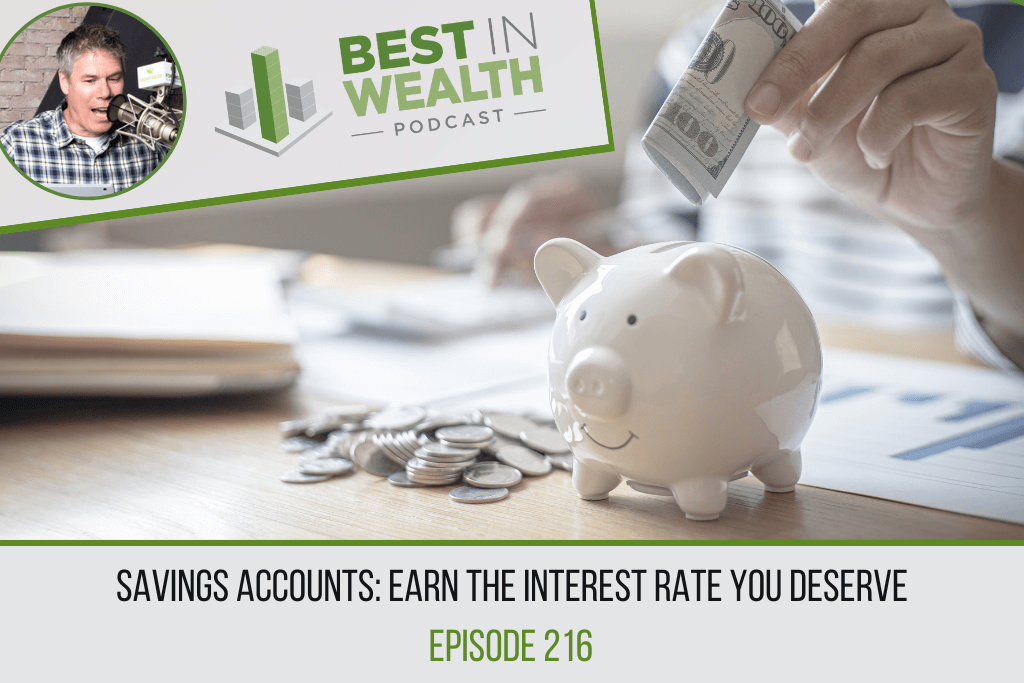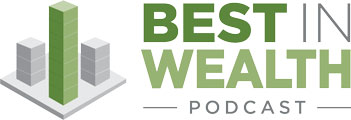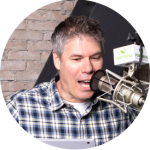Savings Accounts: Earn the Interest Rate You Deserve, Ep #216

According to CNBC, 56% of Americans can’t cover a $1,000 emergency. They do not have enough money in the bank. If that is you, start building an emergency fund now. Dave Ramsey recommends saving $1,000 in the bank immediately. Then, you take any extra money you have and pay off your debt. After that, work to build savings of 3–6 months of living expenses.
But once you have that, what do you do with the money? Where should you keep it? In this episode of Best in Wealth, I share the best way to keep your emergency fund liquid—and exactly how to get the interest rate you deserve.
Learn how to earn the interest rate you deserve on your savings account in this episode of Best in Wealth! #wealth #retirement #investing #PersonalFinance #FinancialPlanning #RetirementPlanning #WealthManagement Click To TweetOutline of This Episode
- [1:06] There was a time when I had nothing
- [2:53] The basics of emergency funds
- [4:09] Your emergency fund needs to be liquid
- [7:18] Is your bank taking advantage of you?
- [10:10] What you need to know about online banking
- [14:21] How to open an online bank account
- [16:45] Why do online banks offer high interest rates?
- [17:28] What if you have more in your emergency fund?
Your emergency fund needs to be liquid
Once you have an emergency fund saved, what do you do with it? It needs to be liquid. You have to be able to access the money immediately. So you do not want the money in annuities, CDs, stocks, or bonds.
You want the money in high-yield savings accounts or maybe money market funds. But you have to be careful with money market funds. Why? Some can go down in value.
I understand that savings accounts earn very little interest. However, the Fed has been raising the Federal funds rate. That is bad news for anyone borrowing money. If you want a loan to buy a house, you are likely to pay 7–8% in interest on a 30-year fixed-rate mortgage.
However, higher interest rates are great for people saving money. When you open a savings account, you are lending money to the bank in return for an interest rate. Why? It is in return for the bank using your money. Interest rates in your savings account should rise whenever the Fed raises interest rates.
Your emergency fund needs to be liquid. Why? I share the details in this episode of Best in Wealth! #wealth #retirement #investing #PersonalFinance #FinancialPlanning #RetirementPlanning #WealthManagement Click To TweetIs your bank taking advantage of you?
Do you know what interest rate your bank is offering you right now? Do you know what you deserve? Wells Fargo, Chase, and the Bank of America are only paying 0.01%. If you have a hefty balance, the interest rate might go up. But how much? Do you know?
Now is the time to get what you deserve with your emergency fund. Some online banks are offering much nicer interest rates. Capital One is paying 3.4% in interest right now. Ally Bank is also offering 3.4%. American Express offers a high-yield savings at 3.5%.
These banks are keeping up with interest rates. Plus, if you have an online savings account, you should receive notifications every time your interest rate rises. Brick-and-mortar banks rarely send out updates.
What you need to know about online banking
“Popular” and “My Savings Direct” are paying over 4%. Is that interest rate too good to be true? Maybe. There are some things you need to fully understand about online banks. Make sure you read the fine print. Do Popular and My Savings Direct have an account minimum? Maybe some banks paying higher interest rates are not FDIC insured.
What does FDIC Insured mean? If you have $50,000 in your bank account and that bank files for bankruptcy, the Federal government guarantees that you will get your money back. You also want to check to see if the online banks require you to keep the money in the account for a specific number of days.
What else do you need to look out for? Some banks may offer a high interest rate that is only an introductory rate. It may be for only a few months.
If you have $50,000 and you are getting 0.01% interest, you are earning $50 on your $50,000 a year. What if you are earning 3.4%? That is $1,750 per calendar year and $1,700 more. That is worth the trouble of opening an account, right?
How do you open an online savings account? Why do online banks offer high interest rates? What if you have more in your emergency fund? What do you do with the extra money? Listen to the whole episode to learn so much more!
Learn what you need to know about online banking and savings interest rates in this episode of the Best in Wealth podcast! #wealth #retirement #investing #PersonalFinance #FinancialPlanning #RetirementPlanning #WealthManagement Click To TweetResources Mentioned
- 56% of Americans can’t cover a $1,000 emergency expense with savings
- Best high-yield savings accounts in February 2023
Connect With Scott Wellens
- Schedule a discovery call with Scott
- Send a message to Scott
- Visit Fortress Planning Group
- Connect with Scott on LinkedIn
- Follow Scott on Twitter
- Fortress Planning Group on Facebook
Audio Production and Show notes by
PODCAST FAST TRACK
https://www.podcastfasttrack.com
Podcast Disclaimer:
The Best In Wealth Podcast is hosted by Scott Wellens. Scott Wellens is the principal at Fortress Planning Group. Fortress Planning Group is a registered investment advisory firm regulated by the Securities Act of Wisconsin in accordance and compliance with securities laws and regulations. Fortress Planning Group does not render or offer to render personalized investment or tax advice through the Best In Wealth Podcast. The information provided is for informational purposes only and does not constitute financial, tax, investment or legal advice.



